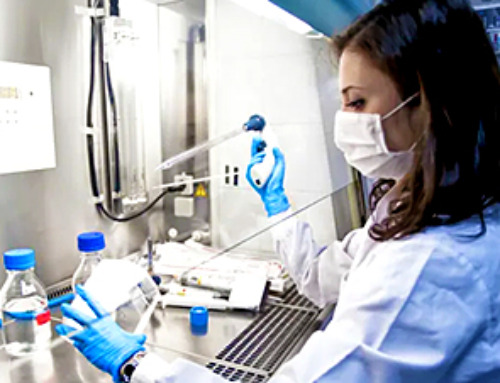A breakthrough nasal surgery has restored the sense of smell for a dozen long Covid patients.
Experts at University College London Hospitals NHS Foundation Trust successfully employed a technique typically used for correcting blocked nasal passages, known as functional septorhinoplasty (fSRP).
Researchers estimate that between 50,000 and 100,000 individuals in the UK are grappling with long Covid-related smell loss.
The study focused on patients who had experienced this impairment for over two years, with previous treatments like smell training and corticosteroids proving ineffective.
One 27-year-old participant experienced a near-complete restoration of smell, significantly improving her quality of life and expanding her dietary choices.
The fSRP procedure addresses deviations in the nasal septum, widening the nasal passageways and increasing airflow to the olfactory region at the roof of the nasal cavity.
This region is crucial for processing smell, and the increased airflow allows a greater concentration of odorants – the chemical compounds responsible for smell – to reach it.
The team believes this increased exposure to odorants is key to restoring the sense of smell for these patients.
Penelope Newman, 27, from south London, took part in the trial. Her results have been published in the journal Facial Plastic Surgery.
She said she had begun to accept she would "probably never be able to smell or taste things the way I used to" before she had the surgery.
"It seemed dire, and after around two and a half years of parosmia (impaired sense of smell), I had totally changed my lifestyle.
"For those who have experienced this, they will know how isolating it can be. The food I could cook and eat was so limited, and I couldn't go out to restaurants as I would feel unwell.
"Getting something as drastic as surgery was a risk I was willing to take on the small chance it might help."
After having the surgery, Ms Newman said, she had begun to enjoy food and smells the same way she used to.
"I can now cook and eat garlic and onions and people can cook for me too. I can go out to eat with my friends and family.
"My taste and smell have almost returned to normal. I'm not sure if it will ever fully return as I still have a small reduction in it, but I am so glad that I am no longer as isolated as I once was.
"I will never take my senses for granted ever again."
The research was led by Professor Peter Andrews, senior consultant surgeon in rhinology and facial plastic surgery, and Alfonso Luca Pendolino, then senior rhinology fellow at UCLH.
It included 25 long Covid patients, with 12 of the patients undergoing fSRP, while the control group of 13 patients continued with smell training – sniffing the same scents repeatedly – for the study.
Sense of smell was measured over the duration of the study by using the Sniffin' Sticks test, a widely-used clinical test to detect smell.
All patients who had fSRP reported an improved sense of smell compared with none of the patients in the sniff test group, where 40 per cent actually reported a worsening sense of smell.
The experts said the surgery was particularly good at increasing odour sensitivity by lowering the odour threshold – the minimal concentration of an odour a person can actually smell – which is specifically noted in long Covid patients with an impaired sense of smell.
Professor Andrews said the sense of smell "is bit like a muscle", saying: "The more you use it, the stronger it is."
The surgery increases the airway into the olfactory area, the roof of the nose, by about 30 per cent, so air flow also increases by about 30 per cent.
Professor Andrews added: "There's a big group of patients who are still suffering with this problem of smell dysfunction following Covid infection three or four years ago.
"This study has shown impressive results – if we apply the principle of increasing the nasal or olfactory airway, we're getting a reactivation of the sense of smell and then an improvement of the sense of smell.
"With long Covid anosmia you've got patients, fundamentally, who can't smell or smell very poorly, so we need to somehow wake them up.
"And this operation sort of does that. It sort of wakes up the olfactory mucosa and then it builds on it through the increased nasal airway – hitting that area, more odorants hitting that area – and we're getting this impressive recovery in the majority of the patients. All patients we operated on improved."
Professor Andrews said persistent Covid anosmia was still a problem for an estimated 50,000 to 100,000 people.
"It's the sort of forgotten group of people, to be honest," he said.
"If you lose your sense of smell it has incredible consequences. It's not until you've lost your sense of smell (that you realise) how it affects your taste, how it affects your daily living."
As a follow-up, researchers are now looking at the brain changes that happen following fSRP, which could explain its long-term benefits.
News
Urgent warning over deadly ‘brain swelling’ virus amid fears it could spread globally
Airports across Asia have been put on high alert after India confirmed two cases of the deadly Nipah virus in the state of West Bengal over the past month. Thailand, Nepal and Vietnam are among the [...]
This Vaccine Stops Bird Flu Before It Reaches the Lungs
A new nasal spray vaccine could stop bird flu at the door — blocking infection, reducing spread, and helping head off the next pandemic. Since first appearing in the United States in 2014, H5N1 [...]
These two viruses may become the next public health threats, scientists say
Two emerging pathogens with animal origins—influenza D virus and canine coronavirus—have so far been quietly flying under the radar, but researchers warn conditions are ripe for the viruses to spread more widely among humans. [...]
COVID-19 viral fragments shown to target and kill specific immune cells
COVID-19 viral fragments shown to target and kill specific immune cells in UCLA-led study Clues about extreme cases and omicron’s effects come from a cross-disciplinary international research team New research shows that after the [...]
Smaller Than a Grain of Salt: Engineers Create the World’s Tiniest Wireless Brain Implant
A salt-grain-sized neural implant can record and transmit brain activity wirelessly for extended periods. Researchers at Cornell University, working with collaborators, have created an extremely small neural implant that can sit on a grain of [...]
Scientists Develop a New Way To See Inside the Human Body Using 3D Color Imaging
A newly developed imaging method blends ultrasound and photoacoustics to capture both tissue structure and blood-vessel function in 3D. By blending two powerful imaging methods, researchers from Caltech and USC have developed a new way to [...]
Brain waves could help paralyzed patients move again
People with spinal cord injuries often lose the ability to move their arms or legs. In many cases, the nerves in the limbs remain healthy, and the brain continues to function normally. The loss of [...]
Scientists Discover a New “Cleanup Hub” Inside the Human Brain
A newly identified lymphatic drainage pathway along the middle meningeal artery reveals how the human brain clears waste. How does the brain clear away waste? This task is handled by the brain’s lymphatic drainage [...]
New Drug Slashes Dangerous Blood Fats by Nearly 40% in First Human Trial
Scientists have found a way to fine-tune a central fat-control pathway in the liver, reducing harmful blood triglycerides while preserving beneficial cholesterol functions. When we eat, the body turns surplus calories into molecules called [...]
A Simple Brain Scan May Help Restore Movement After Paralysis
A brain cap and smart algorithms may one day help paralyzed patients turn thought into movement—no surgery required. People with spinal cord injuries often experience partial or complete loss of movement in their arms [...]
Plant Discovery Could Transform How Medicines Are Made
Scientists have uncovered an unexpected way plants make powerful chemicals, revealing hidden biological connections that could transform how medicines are discovered and produced. Plants produce protective chemicals called alkaloids as part of their natural [...]
Scientists Develop IV Therapy That Repairs the Brain After Stroke
New nanomaterial passes the blood-brain barrier to reduce damaging inflammation after the most common form of stroke. When someone experiences a stroke, doctors must quickly restore blood flow to the brain to prevent death. [...]
Analyzing Darwin’s specimens without opening 200-year-old jars
Scientists have successfully analyzed Charles Darwin's original specimens from his HMS Beagle voyage (1831 to 1836) to the Galapagos Islands. Remarkably, the specimens have been analyzed without opening their 200-year-old preservation jars. Examining 46 [...]
Scientists discover natural ‘brake’ that could stop harmful inflammation
Researchers at University College London (UCL) have uncovered a key mechanism that helps the body switch off inflammation—a breakthrough that could lead to new treatments for chronic diseases affecting millions worldwide. Inflammation is the [...]
A Forgotten Molecule Could Revive Failing Antifungal Drugs and Save Millions of Lives
Scientists have uncovered a way to make existing antifungal drugs work again against deadly, drug-resistant fungi. Fungal infections claim millions of lives worldwide each year, and current medical treatments are failing to keep pace. [...]
Scientists Trap Thyme’s Healing Power in Tiny Capsules
A new micro-encapsulation breakthrough could turn thyme’s powerful health benefits into safer, smarter nanodoses. Thyme extract is often praised for its wide range of health benefits, giving it a reputation as a natural medicinal [...]





















